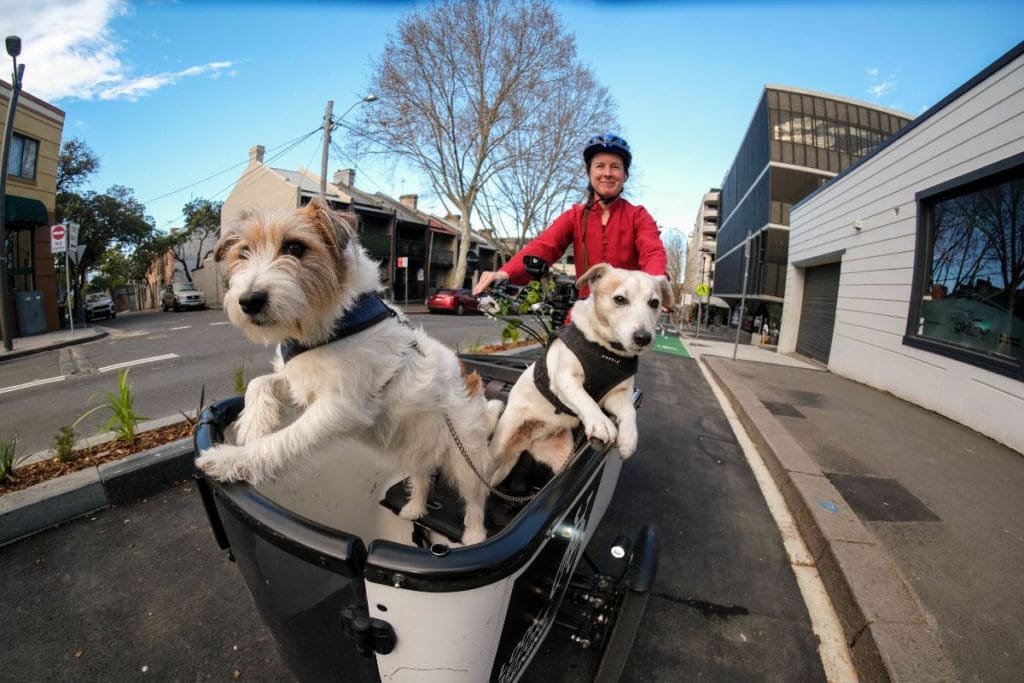Cycling Infrastructure is Good Business Says Influencer

Sydney, NSW
Cycling infrastructure is becoming an economic imperative for businesses and districts, according to long-serving cycling advocate and the City of Sydney’s Manager of Cycling Strategy, Fiona Campbell.
Good public cycling infrastructure is vital to attracting businesses to an area, and many businesses are recognising the economic benefits of providing their own end-of-trip facilities.
Fiona says that awareness is reflected in the sums being invested by private companies in central Sydney.
“You can see that, because just over a four-year period, in the city centre businesses invested $57 million in end-of-trip facilities,” she explained.
“That’s more than the State Government is investing in that area and its shows employers are keen to ensure their staff can take a healthy option to work.”
She said they were building facilities in new buildings and retrofitting existing buildings, and “not because they had to, not because of council regulations”.
Micromobility Conference Insights
Fiona will outline her successes and challenges during her 12 years at the inner Sydney council, when she is one of the presenters at the inaugural Micromobility Conference, being held in the city’s Randwick Racecourse on 25th to 26th November.
Equipped with many years’ experience as a leading cycling advocate, she will share her ideas, lessons learnt and tips on successfully delivering cycling networks.
During her previous life as an experienced computer programmer, Fiona was an executive of Cycling Promotion Alliance, vice president of the Bicycle Federation of Australia, was a director on the Pedestrian Council of Australia board, wrote submissions for Bicycle NSW, and was a cycling representative on the Australian Bicycle Council and National Road Safety Strategy Panel.
She joined the City of Sydney council in 2008, giving her an insider’s role in the development of local government cycling policy and the community engagement to support it.
Fiona said local and State governments are increasingly recognising the social and economic benefits of providing effective and safe active transport infrastructure.
“Businesses want to locate their headquarters where it’s a nice place to live and easy to get around. For it to be easy to get around, you need to not have the whole place car dependent, you need public transport and easy access for walking for cycling,” she added.
“That makes it a place that attracts businesses.”
She said there is overwhelming community support for active transport infrastructure “because it makes so much sense. It’s not an ideological thing”.
Greater City of Sydney Commitment
City of Sydney is escalating its commitment to active transport infrastructure.
In recent years, it has been investing an average of $11 million but it is now well above that figure.
“Over the first 10 years, we built 15km of cycleways. Then in 2020, including the pop-ups, we did nine kilometres in the one year,” she said.
“Now we are going back and making some of those pop-ups permanent and really increasing the pace of projects. At the moment, we have five projects underway.”
They include separated cycleways in Pitt Street North, Kings Street, College Street, Erskineville and Alexandria.
Construction of a highly anticipated separated cycleway in the main arterial road of Oxford Street will start in about 12 months and will take just under a year to build.
Tips for Council Success
Fiona said while there is greater general support for active transport infrastructure, there are a number of measures councils and cycling advocate can take to increase the likelihood of projects going ahead.
There will inevitably be opponents to cycling projects and it was important to show decision makers the number of silent supporters.
“It’s really important to do either the doorknocking or a proper telephone survey that’s representative, or something so show decision makers the level of community support is actually much stronger than the impression they will get just from the letters they get,” she explained.
Fiona said councils could also benefit from having several projects in the planning stages.
“Stoke your pipeline because that’s what’s served us really well,” she said.
“In 2018, when we adopted the Cycling Strategy, the consultation we did for that showed great support among the community for the cycling strategy. But the number one comment we got was ‘you should do more, faster’.
“So during 2019, my colleague Beth did a huge amount of work looking at all the processes and procedures we have – the external ones seeking approval and the internal processes, how we do the procurement, materials and decision, what can we do to build more faster.
“As a result of that, we had more design concepts ready to be developed when COVID hit, and that’s what enabled us to take the opportunity with COVID.
“Since then, we’ve kept doing that, having lots of design projects in the pipeline, so we have projects ready to go. One of two of them will always hit a snag or delay, so that means we still have other projects we can continue with.”

Cyclists need safety rules to protect pedestrian safety. Countless residents in Kings Cross area
hate the food delivery fast moving electric bicycles and terrified of electric scooters of BillyBunter
are afraid daily. Why does your Committee fail locals without law enforcement rules for all…
Kings Cross has been trashed and loss of business for retails… People have been hit and hurt/
Residents have lost their necessary car spaces to commercial care share private groups… the
planning fails rate payers and business.
The area is a wasteland of empty shops sadly an dumped cycles, so what are you going to
win locals support… and oldies have suffered injuries but Council disallow proper injury
public liability insurance… no wonder the Cross is dying, ignoring local concerns daily.
The area looks like a bicycle junkyard.. time for responsibility.
College Street Cycleway failed due to bus and traffic needs… why push this again… there
are pedestrians rights too., not that we see any care from lycra zealots.